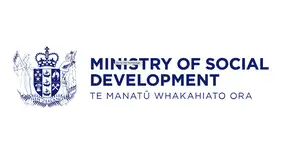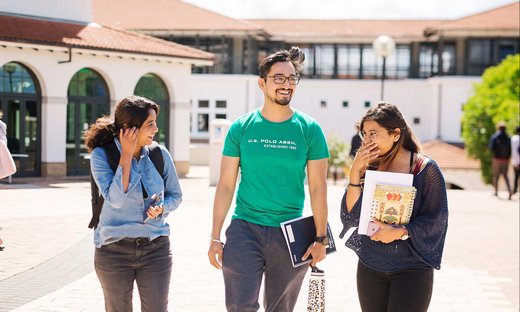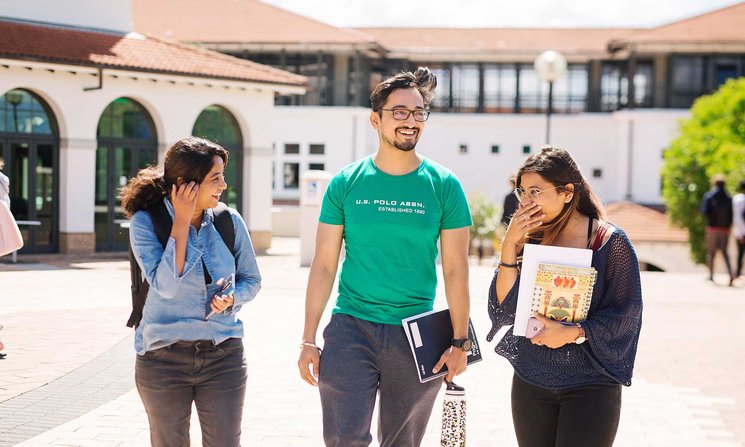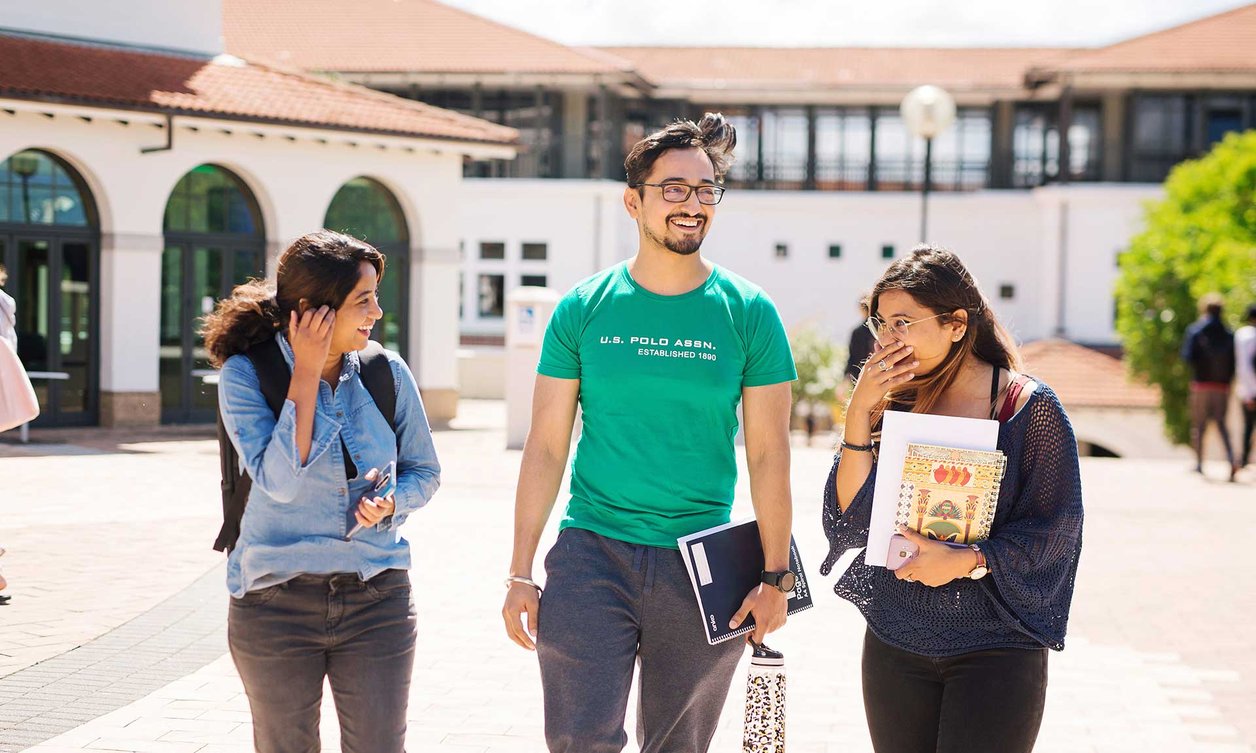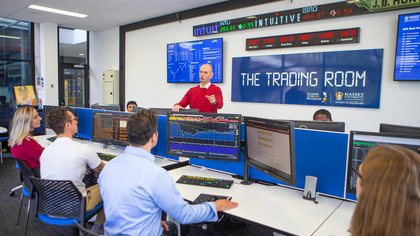
2025 retirement expenditure guidelines released
This year, the guidelines address a key question: Are first-home buyers who use their KiwiSaver to fund their deposit saving enough for retirement? The report models a range of scenarios involving contributions to retirement funds and withdrawals for first-home purchases.
What we do
The Fin-Ed Centre is globally unique for the breadth of its work covering education, research and consultancy. It is New Zealand’s leading research centre on the financial capability and wellbeing of New Zealanders and an Affiliate Member of the OECD International Network of Financial Education – the only member from a New Zealand education institution.
Established in 2011, the Fin-Ed Centre was a joint initiative between the Westpac New Zealand Bank and Massey University. The centre now operates under the sole management of Massey University and is recognised internationally for its work in financial education and research.
Our expertise
- Financial capability research, evaluation and consultancy.
- Delivering culturally responsive training, professional development and resources.
- Advocacy and financial literacy and management.
Our vision – tā mātou whakakitenga
New Zealanders are financially empowered to achieve a better quality of life.
Our mission – tā mātou kaupapa mātāmua
To help New Zealanders become more financially astute by improving their knowledge, attitudes and behaviour towards money.
Research projects
We are constantly working on research that is relevant for businesses and individuals looking to increase their financial capability.
This includes research into housing decisions, saving for retirement and giving our children (better) financial literacy skills. Our research is publicly available.
Financial education in schools: a Kiwi solution
Financial education in schools: a Kiwi solution
A comparative study:
- International comparison of what is happening in other developed economies.
- What will work at the primary level?
- Barriers and solutions.
Research lead: Associate Professor Jodie Hunter, David Kneebone and Fin-Ed Centre research associates.
Cultural pressures faced by young people when managing money
Cultural pressures faced by young people when managing money
Quantitative and qualitative research – this project explores the cultural pressures faced by young people when managing money and the role culture plays on their financial behaviour.
Research lead: Dr Pushpa Wood and Fin-Ed Centre research associates.
KiwiSaver and retirement preparedness
KiwiSaver and retirement preparedness
Qualitative research – interviews and focus groups.
The goal of this project is to answer:
- What is happening in New Zealand and developed economies to address the gender imbalance in retirement planning and investment?
- Are ethnic women really prepared for their retirement?
Research lead: Professor Martin Young, Associate Professor Claire Matthews, Professor David Tripe and Dr Pushpa Wood.
Has COVID-19 changed financial behaviour?
Has COVID-19 changed financial behaviour?
Qualitative research:
- How has COVID-19 changed financial behaviour of people and financial institutions?
Research lead: Professor David Tripe and a Fin-Ed Centre research associate.

A new financial competency framework to facilitate career progression
Our new framework provides a unified, sector-wide tool for defining the knowledge, skills, attributes and behaviours required for financial capability roles. It introduces a shared language and structure for understanding competence across roles in the sector.
Financial education courses and micro-credentials
We run tailor-made and bespoke courses for individuals, groups and organisations.
As well as financial management courses, we also train those who wish to teach personal financial management.
Our courses are affordable and practical. Many are available through distance and online learning, so you can learn when and where it suits you.
Complaint Response and Management
This micro-credential course builds the technical and soft skills required to improve customer outcomes in complaint response and management in the financial services sector.
Money Smarts @ Work
Reach your goals in life with this quick and easy short course about managing your money, offered with industry groups. Understand budgeting and saving, and learn how to manage debt and protect what matters to you.
Financial Capability Practitioners Course
Gain the tools, knowledge and confidence to educate your communities in personal financial management, enhance their financial capability and make a difference to their financial wellbeing with this micro-credential.
This micro-credential will develop your confidence and give you the tools and knowledge to comply effectively with the AML/CFT Act within the scope of your own business.
Our people
Our team has international experience in academic research and a reputation for promoting research that has a community and stakeholder impact.

Dr Pushpa Wood
Dr Wood has worked across the education and industry sectors to improve financial and adult literacy. She has extensive experience developing teaching and learning resources, training and development and stakeholder relationship. Her research interests include identifying trigger points that motivate people to change their financial behaviour and testing culturally appropriate evaluation tools.

Associate Professor Claire Matthews
Claire's research interests centre around retail banking, the provision of financial advice, and financial literacy, with a particular focus on consumers’ financial choices, KiwiSaver, switching costs, internet banking, payment systems, and the role of the branch.
She is a member of the Institute of Finance Professionals New Zealand Inc and the Financial Services Institute of Australasia.

Professor Sasha Molchanov
Sasha is the Associate Head of School for the School of Accountancy, Economics and Finance. His research interests are investments, international finance, econometrics, politics, and market design. Sasha is a faculty mentor of the Student Investment Club.

Dr Jeffrey Stangl
Jeff has transitioned through both business and academia. Before joining Massey in 2004, his 25-year business career primarily involved launching innovative startups, giving him extensive experience in business development and financial management. Jeff holds degrees in Economics, an MBA, a PhD in investments, and is a CFA.

Professor David Tripe
David is a specialist in the area of Banking, with some interest in the related fields of property (and its role in banking), economics (with a particular focus on monetary policy) and areas of finance such as corporate governance.
Before joining Massey in 1994, David worked for 17 years in the banking sector in New Zealand, and he continues his interest in developments in the banking sector.

Professor Martin Young
Professor Martin Young has a long association with Massey University and has also held senior positions in the financial industry in New Zealand. He is Chair of the Asian Shadow Financial Regulatory Committee and serves on the editorial boards of several journals. His research interests are market efficiency, financial regulation, funds management, optimization and bond and derivatives pricing.
Fin-Ed Centre Board
Board Chair
Appointed March 2025.

Massey members

Associate Professor Claire Matthews


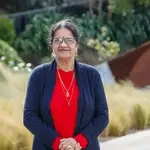
Independent members
Vacant
Consultancy
Our expertise is available on a consultancy basis to help with your financial literacy needs. Contact us to find out how we can help, email fin-ed@massey.ac.nz
Our partners
Centre sponsor
Other partners

Compliance Plus
Compliance Plus is a consultancy service specialising in the Anti-Money Laundering and Countering Financing of Terrorism Act.

Insurance & Financial Services Ombudsman Scheme
The Insurance & Financial Services Ombudsman Scheme resolve insurance and financial services complaints.
Publications
Earlier publications – 2014 to 2022
Retirement Expenditure Guidelines
Retirement Expenditure Guidelines
The New Zealand Retirement Expenditure Guidelines help prepare New Zealanders for the cost of living in retirement.
Download a copy of the guidelines.
New Zealand Retirement Expenditure Guidelines – 2025 (PDF, 1.4MB)
New Zealand Retirement Expenditure Guidelines – 2024 (PDF, 1.7MB)
New Zealand Retirement Expenditure Guidelines – 2023 (PDF, 1.1MB)
New Zealand Retirement Expenditure Guidelines – 2022 (PDF, 979KB)
New Zealand Retirement Expenditure Guidelines - 2021 (PDF, 760KB)
New Zealand Retirement Expenditure Guidelines - 2020 (PDF, 768KB)
New Zealand Retirement Expenditure Guidelines - 2019 (PDF, 2.5MB)
New Zealand Retirement Expenditure Guidelines - 2018 (PDF, 2.3MB)
New Zealand Retirement Expenditure Guidelines - 2017 (PDF, 2.5MB)
New Zealand Retirement Expenditure Guidelines - 2016 (PDF, 1.4MB)
New Zealand Retirement Expenditure Guidelines - 2015 (PDF, 187KB)
New Zealand Retirement Expenditure Guidelines - 2014 (PDF, 460KB)
New Zealand Retirement Expenditure Guidelines - 2013 (PDF, 365KB)
New Zealand Retirement Expenditure Guidelines - 2012 (PDF, 365)
Financial literacy longitudinal study
Financial literacy longitudinal study
Some 300 New Zealanders aged 18 to 20 are taking part in a baseline survey of their financial literacy and experience of financial education. Starting in 2012, the same participants get surveyed every 5 years for 20 years to understand their needs for financial knowledge at different life stages.
Download a copy of the latest update.
Longitudinal Study Stage 3 – August 2023 (PDF, 11.64MB)
Longitudinal Study Interim Update – February 2021 (PDF, 541KB)
Longitudinal Study Interim Update – February 2020 (PDF, 1.2MB)
Longitudinal Study Stage 2 – January 2019 (PDF, 3.1MB)
Longitudinal Study Stage 2 – March 2018 (PDF, 861 KB)
Longitudinal Study Interim Update – September 2016 (PDF, 365KB)
Longitudinal Study Interim Update – 2014 (PDF, 361KB)
Longitudinal Study Stage 1 – December 2013 (PDF, 817KB)
Longitudinal Study Stage 1 – Ngāi Tahu sub-cohort – September 2013 (PDF, 921KB)
NZ Financial Education Centre Newsletter
Fin-Ed Centre Newsletter – August 2025
Fin-Ed Centre Newsletter – March 2025
Subscribe to our quarterly newsletter
In the media
2025
2025
Call for Tailored Financial Literacy Programmes, Risk Info NZ, 16 May 2025
Financial capability educator recognised with global award, RNZ, 17 March 2025
From Delhi to Pōneke: Dr Pushpa Wood named one of the world's top 50 money changers, The Post, 16 March 2025
Monthly Money Matters Convo with Pushpa Wood, LinkedIn, January 2025
2024
2024
Financial Advice New Zealand extends partnership with Massey University’s Fin-Ed Centre, Good Returns, 19 September 2024
Dr. Pushpa Wood: Budgeting for Big Life Changes — Marriage & Parenthood | On the House #59, KPI Institute, Podcast, YouTube, August 2024
Pushpa Wood appointed Member of Financial Advice Code Committee, Indian Newslink, 9 July 2024
Relationships gain strength with financial discipline, Indian Newslink, 10 March 2024
Insurance & Financial Services Ombudsman Scheme, IFSO, 19 February 2024
Getting back on track with money: Pushpa Wood, RNZ, 4 January 2024
Earlier media articles and discussions
Earlier media articles and discussions
2023
The bitter truth about the 'bank of mum and dad', Star News (ODT), 28 December 2023
Watch Dr Pushpa Wood and other New Zealand leaders in a panel discussion on Building Consumer Confidence at the Financial Services Council 2023 annual conference.
2022
Dream Walking into Retirement – NZ Everyday Investor podcast with Claire Matthews, Podcast, February 2022
Business research news
New research highlights gaps in financial education for diverse learners
A new study is calling for financial education in Aotearoa New Zealand schools to be more inclusive of the cultural identities and lived experiences of diverse learners, particularly for Māori and Pacific youth.
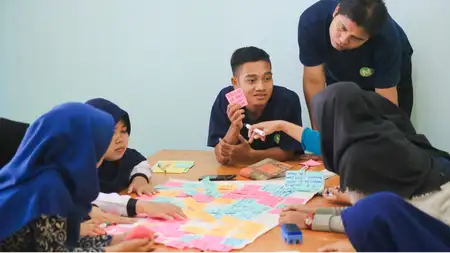
Happy workers are more productive – and the numbers prove it
New research has revealed that happier employees are not only more productive, but also more helpful and innovative.

Less than $500k savings enough for most retirees
The latest Retirement Expenditure Guidelines show that while retirees in Aotearoa New Zealand continue to spend beyond their superannuation payment, for many the excess expenditure is less than reported previously.

Investors leading property price escalation in Tāmaki Makaurau Auckland
In his doctoral thesis, Dr David White researched whether investors have been pushing up house prices in Tāmaki Makaurau Auckland.
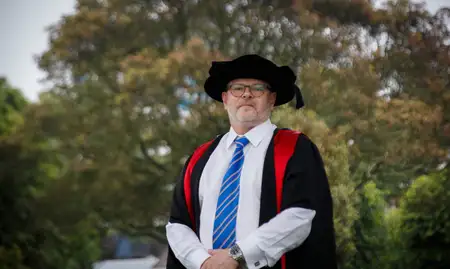
Contact us
Fin-Ed Research Centre
- fin-ed@massey.ac.nz
- Location
Postal address
Financial Education Research Centre
Massey University
PO Box 756
Wellington 6140
New Zealand


